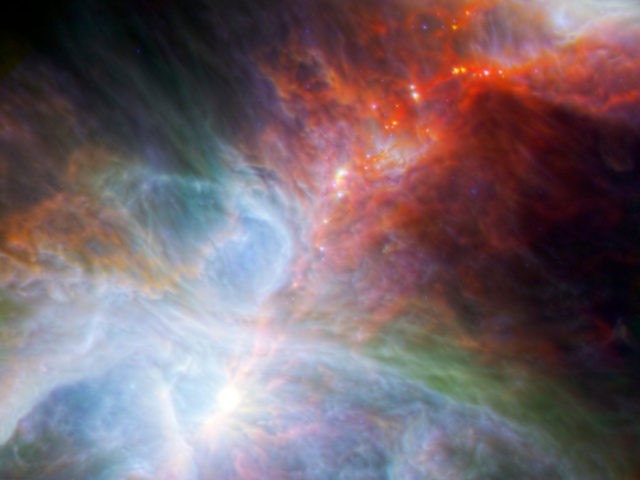The World Health Organization (W.H.O.) may begin naming future variants of the Chinese coronavirus after star constellations, a report this weekend citing the head of the organization’s coronavirus response claimed.
“We will possibly run out of the Greek alphabet, but we’re already looking at the next series of names,” Dr. Maria Van Kerkhove, the W.H.O.’s Chinese coronavirus technical lead, told the Telegraph on August 7.
“We’re actually considering star constellations,” she revealed to the British newspaper.
“We were going to go with Greek gods or goddesses, and I said please, please don’t make me say that publicly,” Van Kerkhove added.
The W.H.O. anticipates more than two dozen variants of the Chinese coronavirus emerging in the future, based upon Van Kerkhove’s disclosure. In late May, the United Nations (U.N.) health body began naming new strains of the Chinese coronavirus after the Greek alphabet, which consists of 24 letters. The organization has so far named 11 Chinese coronavirus variants after Greek letters.
The W.H.O. announced its decision in a May 31 press release to deviate from tradition and name new strains of the Chinese coronavirus after Greek letters instead of their geographic locations of origin.
“[P]eople often resort to calling variants by the places where they are detected, which is stigmatizing and discriminatory. To avoid this and to simplify public communications, W.H.O. encourages national authorities, media outlets and others to adopt these new labels,” the statement read, referring to the Greek alphabet naming system.
The W.H.O. promptly renamed existing strains of the Chinese coronavirus, then known as the British, South African, Brazilian, and Indian variants Alpha, Beta, Gamma, and Delta, respectively. The Chinese coronavirus originated in Wuhan, China, in late 2019.
The U.N. health body may announce its choice to name a hypothetical next series of Chinese coronavirus variants after astronomical constellations “relatively quickly,” Van Kerkhove told the Telegraph on August 7. The W.H.O.’s “virus evolution working group” and legal team are currently “double-checking proposals to ‘make sure we don’t upset anyone with these names,'” she said.
When asked by the Telegraph if the W.H.O. has “concerns that a mutation [of the Chinese coronavirus] could emerge which evades existing vaccines,” Van Kerkhove replied, “It’s a real threat.”
“It’s certainly possible that you could have mutations that will evade our countermeasures … and that’s why it’s so critical that we just don’t rely only on vaccines, that we do everything we can to really drive transmission down,” she told the newspaper.
Van Kerkohove said a “dangerous new variant” of the Chinese coronavirus is “likely to emerge” from regions “with high vaccination rates where the virus is still circulating widely,” further indicating that vaccination against the Chinese coronavirus with currently available inoculations does not necessarily protect recipients from new strains of the virus.

COMMENTS
Please let us know if you're having issues with commenting.